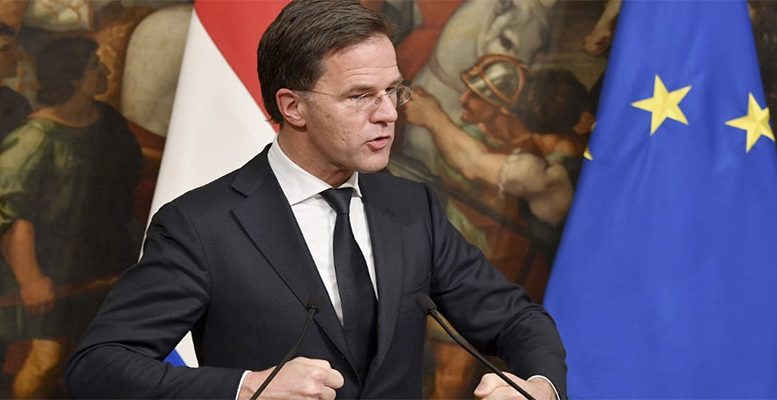Nick Ottens (Atlantic Sentinel) | Few parties are willing to give the liberal prime ministers a fourth term. Revelations that his outgoing government deliberately withheld information from parliament have made it even harder for Prime Minister Mark Rutte, in power since 2010, to form a new government in the Netherlands.
Cabinet minutes, normally kept secret for 25 years but released after they had leaked to RTL Nieuws, reveal that ministers agreed not to share all relevant documents in the so-called child benefits scandal, which caused Rutte’s four-party government to step down in January.
Between 2013 and 2019, some 26,000 parents were wrongly accused of benefit fraud. Many were financially ruined by demands to pay back tens of thousands of euros in child support.
Pieter Omtzigt, at the time a backbencher for the ruling Christian Democrats, had requested internal documents from the tax agency that would disclose when civil servants had first advised ministers of the mistakes.
Withholding information from parliament is a capital offensive in Dutch politics, but Omtzigt’s request was unusual. Ministers are politically responsible for their departments. Parliamentarians have long accepted that civil servants need to be able to make their recommendations in confidence.
Omtzigt argued for an exception. The minutes reveal Finance Minister Wopke Hoekstra, the Christian Democratic party leader, tried to “talk sense” into Omtzigt, who would not relent.
In the election in March, Omtzigt won a third of all votes for his party. His persistence in bringing the child benefits scandal to light has made him one of the most popular politicians in the country — but not necessarily in The Hague, where even some Christian Democrats consider him a loose cannon.
Ethnic profiling
The minutes further reveal ministers underestimated the scope of the tax agency’s mistakes and did not immediately take seriously reports of ethnic profiling.
Tax authorities had in fact treated dual nationality as a potential indicator of fraud since 2013, when the same RTL Nieuws discovered that about 800 Bulgarians had illegally claimed some €4 million in benefits from the Netherlands. Parliament subsequently demanded tougher measures against fraud in a system that distributes €13 billion in benefits annually.
Ministers did recognize early on that the benefits system as a whole has become unwieldy. Close to half the Dutch population receives a child-care, family, health-insurance or rental allowance. Recipients need to apply for each one separately. Simple administrative errors, like incorrectly filling out a form or failing to report changes in family income, can set recipients back thousands of euros at the end of the year.
All major parties argue for reform. Proposals range from nationalizing child care and health insurance to making their costs tax deductible. The next government will have to decide what to do.
Tall order
Forming that next government has become a tall order.
Rutte’s liberal VVD (of which I am a member) won the election in March with 34 out of 150 seats, up one. A continuation of the four-party coalition with the social-liberal D66, the Christian Democrats and the small Christian Union seemed likely.
But the Christian Union turned against Rutte when it emerged he had discussed Omtzigt’s future role in private. Opposition parties, including Labor, the Greens and the right-wing JA21, also cried foul, although Rutte denied he had tried to get rid of a critical lawmaker.
Now we know Rutte wasn’t alone; the whole cabinet expressed frustration about parliamentarians of their own parties. Only D66 leader Sigrid Kaag, the foreign minister, saw a healthy interaction between government and parliament.
Rutte needs the Christian Democrats and D66 for a majority. The only way to form a coalition without the VVD is for those parties to go into government with the left. Such a combination would require seven parties, ranging from the Christian center-right to the far-left Socialists and animal rights party.
Other parties might be more willing to do a deal with the VVD if Rutte steps down, but he remains popular. The most recent I&O survey puts the VVD at the same 34 seats it won in March. Ipsos has the VVD up one seat at 35. Only Maurice de Hond, whose polls tend to inflate support for the far right, has the VVD down two seats.
Pollsters agree the scandal has hurt the Christian Democrats. The party is divided between Omtzigt’s supporters, who mistrust Rutte, and a governmental wing, who fear a coalition without the VVD would be worse.





